Physical Disabilities
Popular Courses
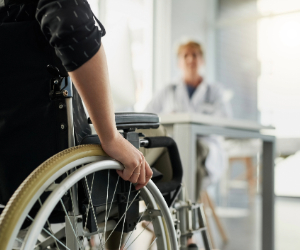
Ableism in Healthcare: Recognition and Response
View Details
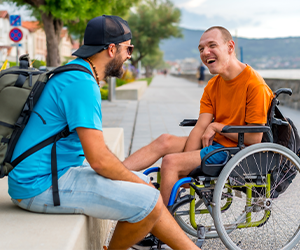
Breaking Down Ableism
As a group, people with disabilities fare far worse than their nondisabled counterparts across a broad range of health indicators and social determinants of health. Adults with disabilities are four times more likely than people with no disabilities to report their health to be fair or poor (40.3% vs. 9.9%). The absence of professional training on disability competency for healthcare practitioners is one of the most significant barriers preventing people with disabilities from receiving appropriate and effective health care.
This introductory course on disability is designed to provide behavioral health professionals with knowledge and skills to better understand and support individuals who have disabilities. This course covers a wide range of topics, including the many identities of people with disabilities, and the social determinants of health, ableism, and the previous models of care that have negatively impacted the well-being of the disabled community. It also highlights what disability-competent care looks like, and the importance of activism, continuous learning, and the disability justice movement.
View Details

Culturally Responsive Care for Deaf and Hard of Hearing Individuals in Medical Care Settings
This course explores the unique experiences, needs, and challenges faced by Deaf, DeafBlind, DeafDisabled, and Hard of Hearing communities in accessing medical healthcare. Participants will learn about deafness and Deaf culture to identify barriers to care, understand health disparities, and apply standards of care to ensure equitable health outcomes. This course emphasizes the importance of taking a linguistically and culturally responsive approach in clinical practice, guiding participants in developing personalized action plans to better serve deaf and hard of hearing patients. Through research-based text, vicarious observation, and practical exercises, learners will gain the knowledge and skills to improve healthcare equity and outcomes for these communities.
View Details
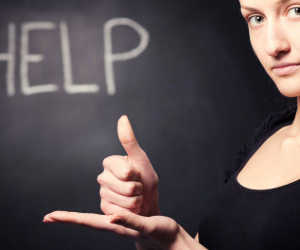
Culturally Responsive Care in Behavioral Health for Deaf and Hard of Hearing Communities
This course delves into the unique experiences, needs, and challenges encountered by Deaf, DeafBlind, DeafDisabled, and Hard of Hearing communities in accessing medical healthcare. Participants will gain insights into deafness and Deaf culture, enabling them to identify barriers to care, understand health disparities, and implement standards of care to promote equitable health outcomes. Emphasizing the significance of a linguistically and culturally responsive approach in clinical practice, the course guides participants in developing tailored action plans to better serve Deaf and Hard of Hearing patients. Through a combination of research-based readings, observational learning, and practical exercises, learners will acquire the knowledge and skills needed to enhance healthcare equity and outcomes for these communities.
View Details
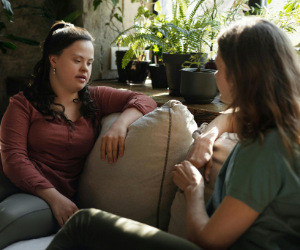
Decision-Making Options
Welcome to Decision-Making Options training, presented by the Colorado Department of Health Care Policy & Financing.
This course provides an overview of the legal and practical aspects surrounding decision-making options for individuals with disabilities. It specifically focuses on individuals with intellectual and developmental disabilities, who are more often placed under restrictive decision-making arrangements.
Whether you are a medical professional, behavioral health provider, or anyone involved in the care and support of individuals with disabilities, this course will equip you with the knowledge to understand and properly communicate the decision-making options available to individuals in the state of Colorado.
View Details
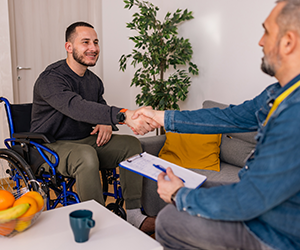
Individuals Experiencing Physical Disabilities
The CDC reports that 1 in 4 adults in Colorado have some type of disability and face a range of barriers when it comes to receiving adequate healthcare. This course is designed to provide you with insights, strategies, and tools (e.g., disability-competent care assessment tool) to provide disability-competent health support to people experiencing a physical disability.
This course aims to:
- break down disability legislation
- provide an overview of accessibility through the lens of disability-competent care
- give solutions to improve practices
- provide an opportunity to reflect
View Details
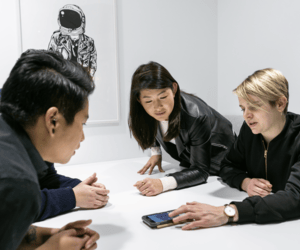
Interpretation Services in Behavioral Health: Best Practices, Recommendations, and Requirements
View Details
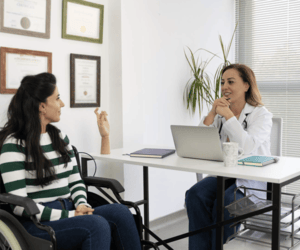
Optimizing Healthcare for People with Physical Disabilities
View Details

Supporting Relationships and Sexual Health in People with Intellectual & Developmental Disabilities
This course aims to equip participants with the knowledge and tools to provide relationship and sexual health support to individuals with Intellectual and Developmental Disabilities (IDD). By the end of the course, participants will be able to identify challenges faced by people with IDD in developing relationships and managing sexual health. They will learn to integrate support strategies addressing development, intimacy, consent, and safe internet practices.
Additionally, participants will identify relevant resources for assisting individuals with IDD and will develop a treatment considerations plan for educating them about engaging in healthy relationships and safe sexual activities.
View Details
